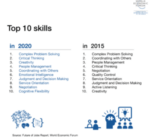Extended application period for second edition of Free Electrons global startup acceleration program
The application deadline for the second edition of Free Electrons has been extended. This application is a global acceleration program for startups that TEPCO launched with 7 other international utilities in December 2017 to recruit energy startups that will drive the next generation of ideas in clean energy, energy efficiency, e-mobility, digitisation and on-demand customer services. Startups chosen for Free Electrons participate in three separate week-long acceleration modules in the Silicon Valley and two other locations around the world. Free Electrons was initiated by eight international utilities, AusNet Services, Dubai Electricity and Water Authority (DEWA), ESB (Electricity Supply Board), EDP (Energias de Portugal), innogy, Origin Energy, Singapore Power (SP) and TEPCO. A win-win approach for startups and utilities The utilities behind the Free Electrons program are committed to a future where energy is smart, clean and accessible to everyone. The global accelerator program is designed for energy startups to further refine their products and services, with the potential of scaling them for a global customer base of 73 million. Industry leaders will offer expertise, resources and access to their customer with opportunities for investment and partnership. A global calling Energy startups around the world with a working prototype are encouraged to apply to Free Electrons. The brightest startups will be selected by the eight utility partners to participate in the six-month accelerator program. Tokyo Electric Power Company Holdings, Inc. headquartered in Tokyo, Japan, is the largest utility in Japan serving millions of homes and businesses. Worldwide the company has more than 34 subsidiaries and 32 affiliates in 8 countries and employs approximately 42,060 people. Consolidated revenue for the fiscal year ending March 31, 2017, totalled 5.3 trillion Japanese yen. The company was established in 1951 and is listed on the First Section of the Tokyo Stock Exchange.










